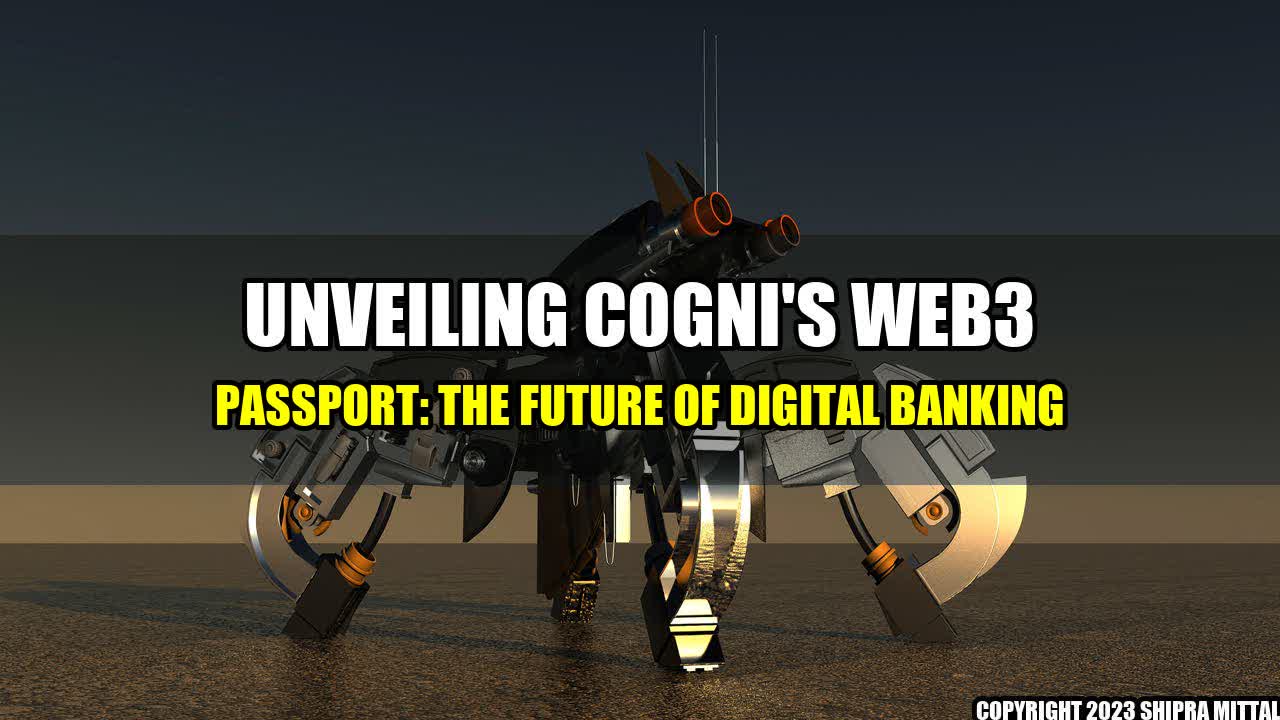The Digital Banking Revolution
Once upon a time, banking involved visiting a physical branch, waiting in long queues, filling out paperwork, and dealing with slow processes. But with the advent of digital banking, things became easier and more accessible. With a few taps on a smartphone, people could open accounts, transfer money, pay bills, and do much more without leaving their homes.
However, digital banking had its limitations too. While it made banking activities more convenient, it still relied on centralized systems that could be vulnerable to cyber attacks, data breaches, and other security issues. Moreover, traditional banks often charged high fees, had complex KYC requirements, and lacked transparency and flexibility.
The Rise of Web3 and Blockchain
Enter Web3 and blockchain. These technologies offer a decentralized, secure, and transparent way of storing and transacting data and value. With Web3, users can own and control their digital assets, identities, and interactions without relying on intermediaries.
Blockchain, on the other hand, provides a tamper-proof, immutable, and auditable ledger that enables trust and consensus among parties. Combined, Web3 and blockchain are paving the way for a new era of decentralized finance (DeFi) that promises to democratize financial services and empower users.
Cogni's Web3 Passport
Cogni is a fintech startup based in Los Angeles that aims to revolutionize digital banking using Web3 and blockchain. Founded in 2016, Cogni offers a mobile app that serves as an all-in-one banking platform for millennials and Gen Z users. The app lets users manage their finances, track their expenses, make payments, and earn rewards.
Recently, Cogni launched a new feature called Web3 Passport that enables users to store their digital identities, wallets, and tokens in a decentralized and interoperable format. This means that Cogni users can seamlessly connect and transact with other Web3 apps and services without having to switch between different platforms, wallets, or KYC procedures.
For instance, a Cogni user can use their Web3 Passport to sign up for a DeFi platform like Uniswap, trade cryptocurrencies, or participate in a decentralized autonomous organization (DAO) without needing to share their personal information or undergo a separate KYC process. This not only saves time and hassle but also enhances privacy and security.
The Future of Digital Banking
Cogni's Web3 Passport is a game-changer for digital banking and Web3 adoption. By leveraging the power of decentralized identity, Cogni is creating a seamless and frictionless experience for its users that integrates with the broader Web3 ecosystem. This will not only attract more users to Cogni but also increase the network effects and value of Web3 as a whole.
However, Cogni's Web3 Passport is not without challenges and criticisms. Some experts argue that Web3 is still in its early stages and faces technical, regulatory, and adoption hurdles. Others contend that Web3's decentralized nature could give rise to new forms of fraud, scams, and illegal activities that are difficult to trace and penalize.
Overall, Cogni's Web3 Passport represents a bold and innovative step towards a more decentralized, secure, and user-centric model of digital banking. Whether it becomes a mainstream solution or remains a niche offering, it signals the growing interest and potential of Web3 and blockchain in reshaping the future of finance.

Akash Mittal Tech Article
Share on Twitter Share on LinkedIn